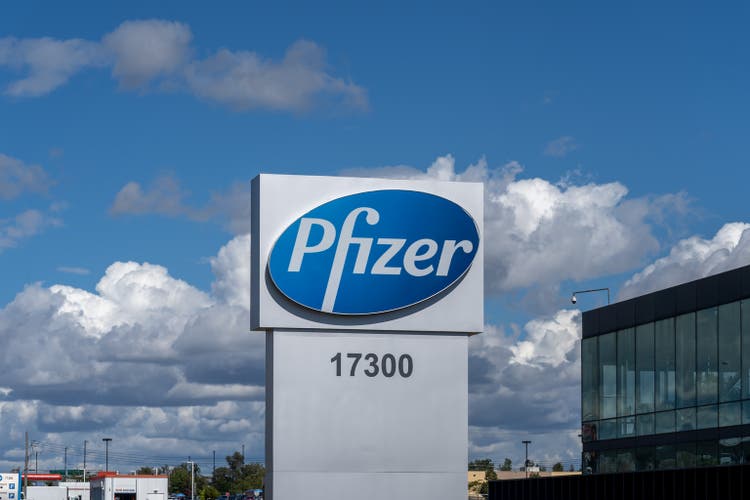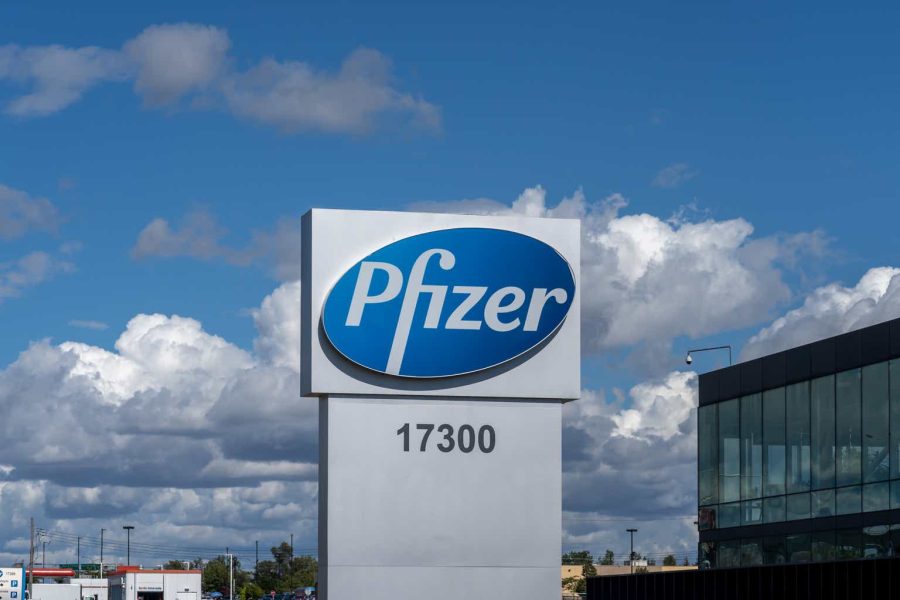Summary:
- There’s some rumbling going on within Pfizer’s investment community, as an activist hedge fund says that the company’s performance has not been good enough.
- Pfizer has been in an anomalous situation the last few years, to be sure, thanks to the pandemic.
- Then there’s always the question of productivity in general.
- Whether you like Pfizer or not, the company did a great deal to combat the coronavirus.
JHVEPhoto
There’s some rumbling going on within Pfizer’s (NYSE:PFE, NEOE:PFE:CA) investment community, as an activist hedge fund says that the company’s performance has not been good enough. The CEO of Starboard Investors made some headlines this week when he told a conference that “We measure success in producing blockbuster drugs, and we all get measured by our track records. The track record here is not great” Starboard holds roughly $1 billion in Pfizer stock, so they are not exactly a voice crying in the wilderness here.
That second link quotes unnamed sources as saying that the company’s former CEO Ian Read and former CFO Frank D’Amelio “have expressed interest” in helping Starboard make these waves, which is interesting. Pfizer has been in an anomalous situation the last few years, to be sure, thanks to the pandemic. The vaccine developed with BioNTech and the viral protease inhibitor Paxlovid gave a huge boost to the company’s earnings, but that period seems to be over. Both these products still sell, of course, but the sudden flood of revenue is not going to come back. Well, at least I hope it’s not, if you know what I mean.
So Starboard is in a “What have you done for us lately” mood, and that’s one that biopharma companies are always vulnerable to. It’s a choppy business, despite management forever talking about smooth ramps to steady growth as the pipelines keep rolling along and delivering the big wins. The truth is that the big wins are not so predictable (and nor are the big losses, naturally). And every new drug has a clock ticking over its head until patents start expiring, and generic competition shows up. Like many others, I have worked at a company during the flush years when the company’s big seller has just been approved, and I have also watched as the years go on afterwards as you wonder what’s going to replace it. Sometimes the next big project comes through, and sometimes it doesn’t, and that means that sometimes the company and the investors get to watch in slow-motion horror as the big flagship drug heads for the patent cliff as it becomes increasingly clear that there’s nothing to replace it with.
Then there’s always the question of productivity in general. If you look at R&D spending versus results, you can see a pretty big spread across companies. It’s tempting to assume that something is going right for the ones at the top and going wrong for the ones at the bottom – why are they spending so much more money with nothing to show for it, anyway? That explanation doesn’t have to be wrong, but it doesn’t necessarily have to be completely right, either, because “time and chance happeneth to them all”, as it says in Ecclesiastes. The picture you see is a mixture of different levels of competence and different levels of luck.
And the performance of the stock is an issue on top of that! Stocks and their underlying companies are not always in sync. Pfizer’s trading for about half of its value during the pandemic high, and you can look at that the way that Starboard does and say that that performance is just unacceptable, but one could also ask if the company’s valuation didn’t also get ahead of reality for a while. After all, the whole idea of rolling out vaccines and antiviral therapies for a new pathogen is to lower the need for their use, right? Whether you like Pfizer or not (my opinions vary with time) and whether you like their CEO Albert Bourla or not, the company did a great deal to combat the coronavirus. And they were richly rewarded for it, but those rewards didn’t (and couldn’t) go on forever. If Starboard is wondering why Pfizer’s stock isn’t back at its peak, that’s a reason for you right there.
The next question is just what, exactly, Starboard plans to do about it. They talk about poor capital allocation and various R&D failures, but I can’t imagine that anyone at the hedge fund knows diddly-squat about actual pharma R&D decisions (to be fair, most people don’t). Asking them which projects they’d allocate more or less funding to, what disease areas they’d prioritize and why – these would be wastes of time. And even if they had great answers, even if those answers were completely right and just what Pfizer should do, how long would it be before you saw the real effects? You’re looking (as always) at multiyear timelines, and as I’ve said before, one of the problems with making big sweeping management changes in this business is that by the time those changes do anything the team that made them is probably gone. Perhaps the answer is that bit about Ian Read and Frank D’Amelio? It might be that Starboard’s plan is “Give it back to those guys and bring the good times back”. Which brings up the question of just how good those times were, and whether those conditions can be replicated now, even if you like them in restrospect.
But who am I kidding? Starboard, like any hedge fund, is not looking out for Pfizer as much as they’re looking out for Starboard. They see an opportunity to make a lot of money by taking a large position in a stock that’s not doing so great and goosing its value by coming in with big plans to fix things. That has worked very well for them over the years, most notably with Darden Restaurants (DRI), and the same techniques that worked on Olive Garden will probably be applied here. Whether things actually get fixed or not, even whether they were broken or not in the first place, are secondary to making other investors believe in both of those propositions. So the stock goes up. Drugs, research, medical science, all that stuff? Levers, tools, buttons to push and signs to wave to make the stock go up.
Disclosure: None.
Editor’s Note: The summary bullets for this article were chosen by Seeking Alpha editors.
